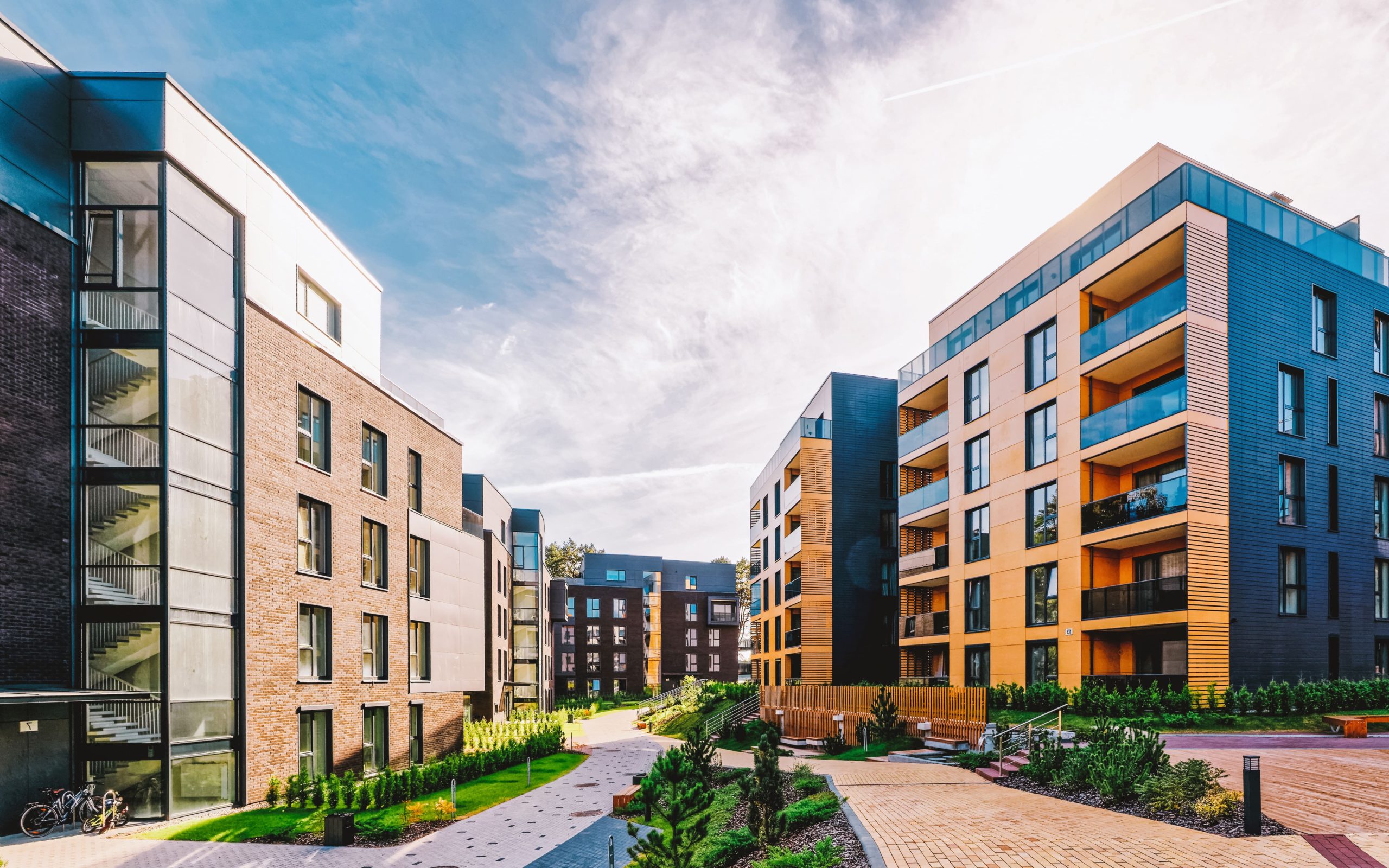
In the ever-evolving landscape of urban living, the choice between condos vs apartments has become a pivotal decision for individuals seeking a place to call home. Both options offer unique advantages and considerations, making this choice one of great significance in the journey towards finding the perfect dwelling.
According to a recent research report by Mordor Intelligence, the Condominiums and Apartments Market is currently worth approximately USD 1,220.51 billion and is expected to experience a compound annual growth rate (CAGR) exceeding 3% throughout the forecast period.
This growth is primarily attributed to the increasing need for affordable housing, which has spurred the demand for condominiums and apartments. Additionally, the market is receiving a boost from a surge in residential housing sales, fueled by the influx of new buyers entering the market.
In this blog, we embark on a comprehensive exploration of the distinctions between condos vs apartments, shedding light on the nuances that often go unnoticed. We will delve into the core aspects that define these two housing options, their implications on lifestyle, and the factors that can sway your decision in one direction or the other.
Whether you’re a first-time homebuyer, a seasoned urban dweller, or simply someone curious about the world of real estate, join us as we navigate the intricacies of condos vs apartments, helping you make an informed choice that suits your lifestyle and aspirations.
Key Takeaways
- Make your housing decision wisely by considering budget, lifestyle preferences and ownership control.
- Condos offer amenities & equity but require more rules. Apartments provide convenience & lower costs.
- Research, visit in person and consult with professionals to make the best choice for you!
Suggested Posts
- Comparing Low-Rise, Mid-Rise, and High-Rise Buildings: A Renter’s Guide
- Managing Rental Properties: A Comprehensive Guide For Landlords
- Harnessing Apartment Chatbot Technology in 2023
Condos vs. Apartments | What’s the Difference?
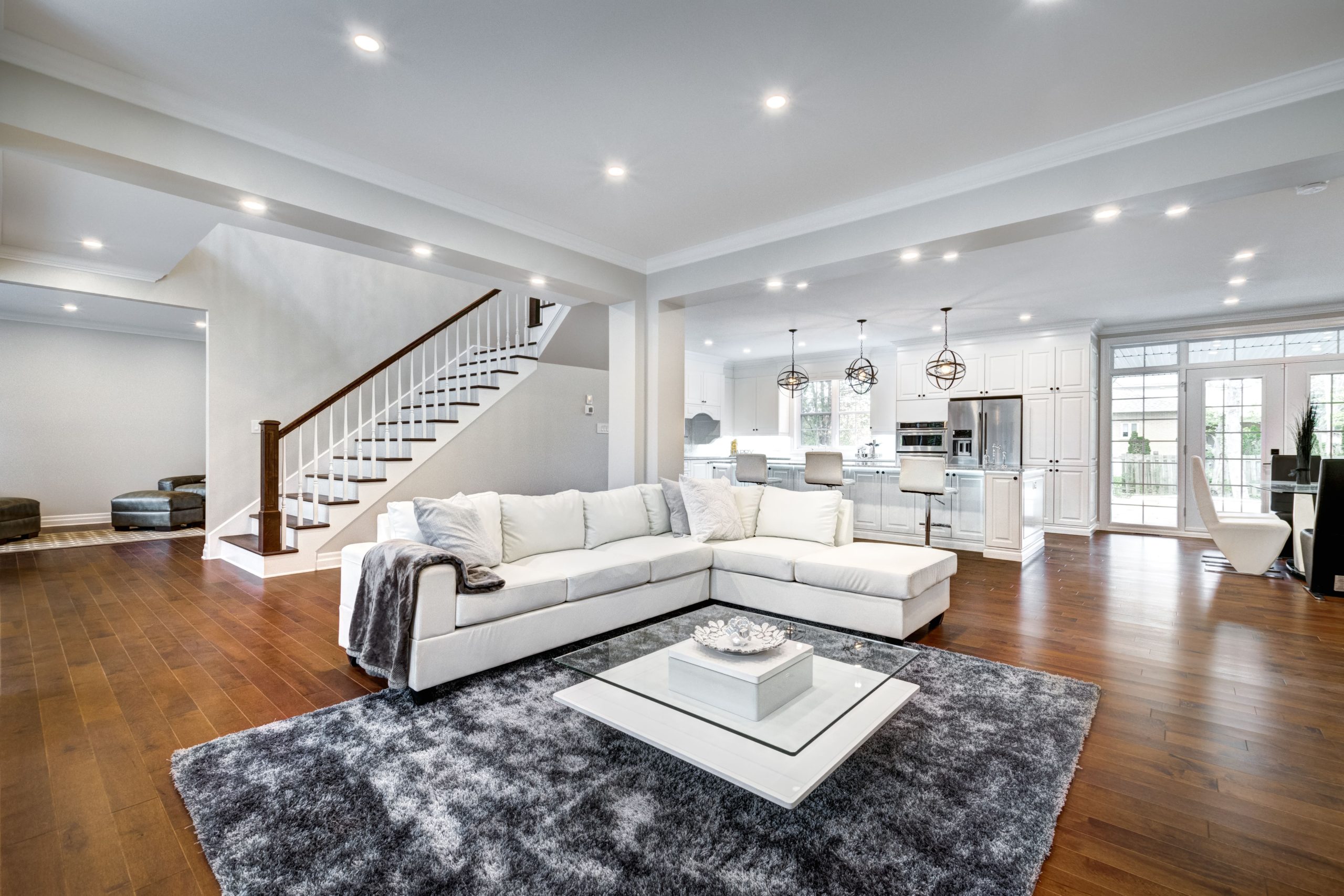
So, what’s the real difference between a condo and an apartment? It all comes down to ownership. Condos are individually owned units within a larger residential building, while apartments are rented units owned by a single entity or property management company. This distinction in ownership affects everything from maintenance responsibilities to customization options.
Things to keep in mind:
- Each condo owner within a community takes responsibility for their individual unit, with a homeowner’s association (HOA) managing shared amenities and common areas.
- Apartment complexes, on the other hand, tend to have a property manager who takes care of both apartments and shared spaces.
- The bottom line? If you’re looking for more control over your living space, a condo might be a better fit.
- But if you prefer the convenience of having someone else handle exterior maintenance and repairs, apartment living could be right up your alley.
Understanding Condos

Condominiums, often referred to as condos, are a popular form of residential housing that combines aspects of apartment living and homeownership. In this detailed exploration of condos, we will delve into various facets, including their definition, ownership structure, financing and costs, maintenance responsibilities, amenities and facilities, as well as the pros and cons associated with living in a condominium community. Unlike traditional single-family homes or apartments, condos represent a hybrid form of property ownership that offers both privacy and communal living aspects.
Ownership Structure
Individual Ownership
One of the fundamental features of condominiums is that residents own their individual units outright. This ownership includes the interior space of their unit, which they can modify and decorate to suit their preferences. This level of personal ownership extends to the walls, floors, ceilings, and any fixtures within the unit.
Common Areas Ownership
In addition to individual unit ownership, condo residents collectively own and share common areas such as hallways, elevators, parking lots, recreational spaces, and often, the building’s exterior. The ownership of these common areas is typically governed by a condominium association, which is composed of condo owners and manages the communal aspects of the property.
Financing and Costs
Mortgage vs. Renting Costs
Financing a condo purchase involves obtaining a mortgage loan, much like buying a traditional home. However, the costs associated with condo ownership can differ from those of renting or owning a single-family home. While monthly mortgage payments are similar to those for houses, condo owners also need to factor in association fees (discussed later) and property taxes.
Association Fees
Condo residents are required to pay monthly or annual association fees. These fees cover various expenses, including maintenance of common areas, utilities for shared spaces, security services, insurance, and sometimes, amenities such as a gym or pool. Association fees can vary widely, depending on the size of the complex and the services offered.
Maintenance Responsibilities
Individual Unit Maintenance
Condo owners are responsible for the maintenance and upkeep of their individual units. This includes repairs to appliances, plumbing, and interior fixtures. Owners have the flexibility to remodel their interiors as they see fit, subject to certain restrictions outlined in the association’s rules and regulations.
Common Area Maintenance
Common area maintenance is typically managed by the condominium association. This responsibility includes tasks such as landscaping, cleaning common spaces, repairing building exteriors, and ensuring the proper functioning of shared amenities. The cost of these maintenance activities is covered by the association fees paid by residents.
Amenities and Facilities
On-site Amenities
One of the attractions of condo living is access to on-site amenities that may be cost-prohibitive in single-family homes. These amenities can include swimming pools, fitness centers, clubhouses, communal gardens, and entertainment areas. Residents can enjoy these facilities without the need for upkeep or maintenance.
Community Features
Condo communities often promote a sense of belonging and community. Many offer social activities, group events, and common spaces for residents to interact. This communal aspect can be appealing to those seeking a sense of community within their living environment.
Pros of Condos
Equity Building
Condo ownership allows individuals to build equity over time, similar to traditional homeownership. This means that as the condo’s value appreciates, so does the owner’s investment.
Amenities
Access to amenities like pools, fitness centers, and community spaces can enhance residents’ quality of life and provide added convenience.
Security
Condo complexes often have security measures in place, such as gated entrances and surveillance systems, which can contribute to a sense of safety and peace of mind.
Cons of Condos
Association Rules
Condo living comes with a set of rules and regulations imposed by the condominium association. These rules can dictate everything from pet ownership to how units can be renovated. Some residents may find these restrictions limiting.
Association Fees
While association fees cover many expenses, they can also be a financial burden, especially if they increase significantly over time. Failure to pay these fees can lead to penalties or even legal action by the association.
Limited Control
Condo owners have limited control over the management and decision-making processes of the condominium association. Decisions about common areas and amenities are typically made collectively, which may not always align with an individual owner’s preferences.
Understanding Apartments
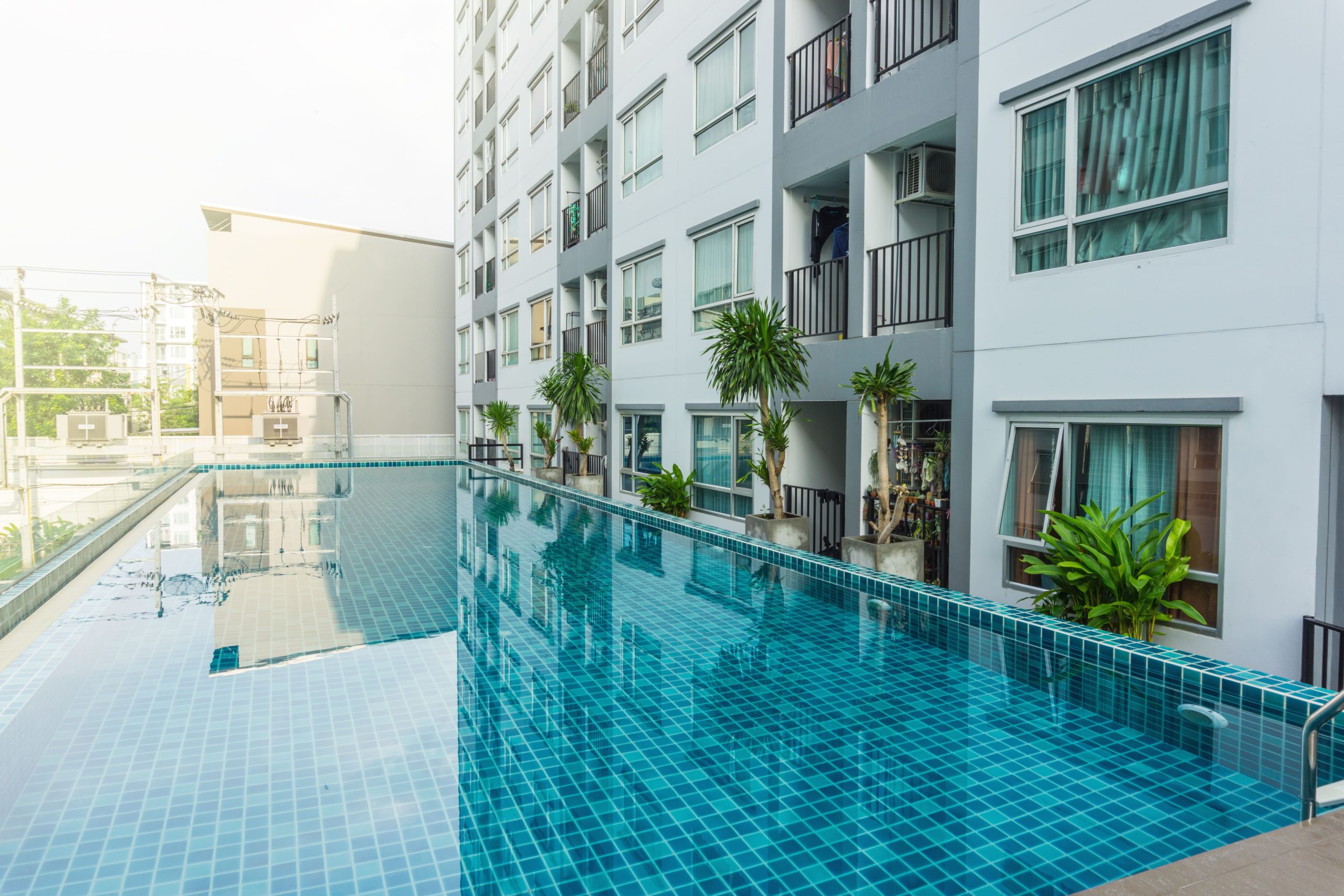
Apartments are a type of residential housing unit that are typically part of a larger building or complex, where multiple individual living spaces are housed within a single structure. These living spaces, known as apartment units, are designed for people or families to rent and occupy as their primary or temporary place of residence. Apartments vary widely in terms of size, layout, and amenities, catering to a diverse range of lifestyles and preferences.
Ownership Structure
Rental Agreements
The most common form of apartment ownership is through rental agreements. In this arrangement, tenants pay a monthly rent to the property owner or management company in exchange for the right to occupy and use the apartment. Rental agreements are typically contractual arrangements that specify the duration of the lease, rent amount, and terms and conditions of tenancy.
Landlord Responsibilities
Landlords in apartment complexes are responsible for maintaining the property, ensuring it meets health and safety standards, and addressing any issues that may arise during the tenancy. They are also responsible for providing essential utilities and services, such as water, heating, and garbage disposal, as specified in the rental agreement.
Financing and Costs
Monthly Rent
Rent is the primary cost associated with renting an apartment. The monthly rent amount varies based on factors such as location, apartment size, amenities, and the rental market’s overall demand and supply. Rent typically covers the cost of using the apartment and common areas.
Security Deposits
Many landlords require tenants to pay a security deposit upfront, which is usually equivalent to one month’s rent or more. This deposit serves as financial protection for the landlord against potential damages or unpaid rent. It is refundable to the tenant at the end of the lease, minus any necessary deductions for repairs or unpaid bills.
Maintenance Responsibilities
Landlord Maintenance
Landlords are responsible for the upkeep of common areas, building exteriors, and major systems such as plumbing, electrical, and heating. They should promptly address maintenance issues that affect the habitability and safety of the apartment, including repairs and necessary renovations.
Tenant Responsibilities
Tenants are typically responsible for maintaining the cleanliness and condition of their individual apartment units. They should promptly report any issues to the landlord and perform minor maintenance tasks, such as changing light bulbs and ensuring proper ventilation.
Amenities and Facilities
In-Unit Amenities
Apartments may offer various in-unit amenities, such as kitchen appliances, laundry facilities, air conditioning, and private balconies or patios. The availability of these amenities varies from one apartment to another.
Common Area Facilities
Many apartment complexes provide common area facilities for residents to enjoy, including fitness centers, swimming pools, communal lounges, and outdoor recreational spaces. These amenities can enhance the overall living experience in an apartment complex.
Pros of Apartments
Lower Upfront Costs
Renting an apartment typically requires a lower upfront financial commitment than purchasing a home. Tenants can avoid the substantial down payment, property taxes, and maintenance costs associated with homeownership.
Flexibility
Apartments offer greater flexibility in terms of lease duration. Tenants can choose shorter leases, allowing them to relocate or change their living situation more easily in response to changing circumstances.
Maintenance Convenience
Apartment living often involves fewer maintenance responsibilities for tenants, as landlords are generally responsible for major repairs and upkeep of common areas. This can save tenants time and effort compared to owning a home.
Cons of Apartments
No Equity Building
Unlike homeownership, renting an apartment does not allow tenants to build equity in the property. Monthly rent payments do not contribute to ownership, and tenants do not benefit from potential property value appreciation.
Limited Customization
Tenants may have limited freedom to customize their living spaces in apartments, as landlords often have rules and restrictions regarding alterations and decorations. This lack of personalization can be a drawback for some individuals.
Rent Increases
Rent in apartments is subject to periodic increases, depending on factors like the rental market, property maintenance costs, and inflation. These increases can make it challenging for tenants to predict long-term housing expenses. Rent control laws in some areas may mitigate this issue to some extent.
Factors to Consider When Choosing Between Condos vs Apartments

Choosing between a condominium (condo) and an apartment can be a significant decision, as it directly affects your living arrangements, financial commitments, and lifestyle. Both options offer unique advantages and considerations, and your choice should align with your specific needs and goals. In this comprehensive exploration, we will delve into various factors to consider when making this decision.
Budget and Financial Considerations
1. Down Payment vs. Security Deposit
Condos: Condo ownership typically requires a substantial down payment, often ranging from 10% to 20% of the property’s purchase price. This upfront cost can be a significant financial hurdle. However, the median sale price of an existing condo in 2022 was $334,600, according to the National Association of Realtors, while the median price for a single-family home was $392,600.
Apartments: Renting an apartment usually involves a security deposit, which is significantly lower than a condo’s down payment. This makes renting an apartment a more financially feasible option for individuals with limited savings.
2. Monthly Costs
Condos: While monthly mortgage payments for condos can be comparable to or even lower than apartment rents, owners must also consider property taxes, homeowner’s association (HOA) fees, and maintenance costs. These ongoing expenses can vary widely and should be factored into your budget.
Apartments: Apartment renters typically have a more predictable monthly cost, as it primarily includes rent and utility bills. Rent increases are generally regulated in many areas, providing stability in housing costs. Per Census data, HOA fees typically average $170 per month.
Long-term vs. Short-term Living Goals
Condos: Condos are often chosen by individuals or families looking for long-term housing stability. They are ideal for those who plan to stay in one location for several years or see their property as an investment for future resale.
Apartments: Apartments are well-suited for individuals seeking short-term flexibility. They are ideal for people who may need to relocate frequently due to job changes or life circumstances, as leases usually range from six months to a year.
Lifestyle and Amenities Preferences
Condos: Condos often offer more upscale amenities, such as fitness centers, swimming pools, concierge services, and communal gathering spaces. These amenities can enhance your quality of life but may come with higher HOA fees. For example, Luxury condos close to employment centers have transformed Downtown Los Angeles into a “live, work, play” area for young professionals. The Metropolis Los Angeles Tower II includes amenities such as a four-lane swimming pool and spa, areas for volleyball, yoga, cycling, a dog park, and a playground for kids, while the TEN50 offers a gym, entertainment rooms, and a drone landing pad, which is developed for drone deliveries.
Apartments: While apartments also offer amenities, they might be more limited in scope compared to condos. However, some luxury apartment complexes provide similar upscale amenities.
Location and Accessibility
Condos: Condos can be found in various locations, including urban centers and suburban areas. They are often strategically located near transportation hubs and commercial districts, providing convenience for residents.
Apartments: Apartments are available in a wide range of locations as well, offering flexibility in choosing proximity to work, schools, or other important destinations. However, availability may vary depending on the area.
Investment Potential
Condos: In 2022, there was a notable growth of 5,000 new condominium communities and homeowners’ associations, as per the predictions made by the Foundation for Community Association Research. These community associations, encompassing entities like homeowners’ associations, condominiums, and housing cooperatives, now provide housing for approximately 74.1 million Americans, constituting a significant 25-27% share of the overall housing inventory in the United States. Owning a condo can be an investment opportunity. The property may appreciate over time, allowing you to build equity and potentially generate rental income if you choose to lease it out.
Apartments: Renting an apartment doesn’t offer the same investment potential as owning property. However, it can free up your finances for other investments or allow you to save for future homeownership.
Maintenance and Responsibilities Tolerance
Condos: Condo owners are responsible for their unit’s maintenance but often share the responsibility for common areas and building exteriors through HOA fees. If you’re comfortable with some level of responsibility and prefer a say in property management decisions, a condo may be suitable.
Apartments: Apartment renters enjoy minimal maintenance responsibilities. Repairs and upkeep of the building are typically handled by the property management, allowing residents to focus on their daily lives without worrying about property-related tasks.
Facts That You Should Be Aware Of

Condominiums and apartments are both units within multifamily residential buildings.
- When considering housing options, it’s crucial to understand the fundamental similarity between condominiums (condos) and apartments: they are both types of housing units located within multifamily residential buildings.
- These buildings are designed to accommodate multiple households or individuals in separate living spaces under a single roof. These units can range from small studio apartments to spacious multi-bedroom condominiums, depending on the specific building and its configuration.
- The common characteristics shared by both condos and apartments within multifamily buildings include having individual living spaces with their own entrances, as well as shared amenities like lobbies, elevators, hallways, and common areas such as fitness centers, swimming pools, or laundry facilities.
- These shared spaces are usually maintained and managed collectively by the residents, property owners, or homeowner associations (HOAs).
The main difference between a condo and an apartment is ownership.
- The primary distinguishing factor between a condo and an apartment lies in the concept of ownership. In an apartment, residents typically rent their living space from a landlord or property management company. In contrast, condo units are individually owned by the occupants.
- In an apartment, you are essentially a tenant, and you pay rent to the property owner in exchange for the right to live in the unit. The landlord maintains ownership of the entire building and is responsible for its overall upkeep, including shared areas and facilities.
- On the other hand, when you purchase a condo, you become the owner of that specific unit within the building. You have a deed or title to the property, giving you legal ownership.
- However, you still share ownership of common spaces and amenities with other condo owners in the same building through the HOA.
Typically, it costs more to purchase a condo than to rent an apartment.
- The cost associated with condos and apartments differs significantly due to the ownership structure and financial responsibilities involved.
- When renting an apartment, your primary expense is the monthly rent, which can vary based on location, size, and amenities.
- While you may need to pay for utilities, renter’s insurance, and possibly parking, you don’t have the upfront financial commitment that comes with purchasing a condo, such as a down payment, closing costs, and property taxes.
- In contrast, buying a condo involves a more substantial initial investment. You must cover expenses like the down payment, closing costs, property taxes, and potentially mortgage payments.
- The exact cost will depend on the condo’s price and your financing arrangement. However, over time, owning a condo may offer potential for building equity and investment returns, unlike renting an apartment.
For both property types, maintenance and repair costs for shared spaces are covered by HOAs or landlords.
- Whether you reside in a condo or an apartment building, the responsibility for maintaining and repairing shared spaces falls on an entity other than the individual residents.
- In apartment buildings, landlords or property management companies typically oversee these tasks.
- In condominiums, the responsibility for managing and maintaining common areas is delegated to a homeowner association (HOA).
- Condo owners pay monthly dues or fees to the HOA, which uses these funds to cover expenses such as landscaping, security, building maintenance, and repairs in shared areas.
- The HOA ensures that the building’s common elements remain in good condition and manages the financial aspects associated with these tasks.
Condo owners are responsible for in-unit repairs and improvements whereas landlords cover that for renters.
- A key distinction between condo ownership and renting an apartment is the scope of responsibility for in-unit maintenance and improvements.
- Condo owners are responsible for the upkeep, repairs, and enhancements within their individual units. This includes tasks like fixing plumbing issues, painting, replacing appliances, and making any desired interior modifications or upgrades. The owner must also carry their own insurance to cover these unit-specific liabilities.
- Conversely, when you rent an apartment, the landlord or property management company assumes responsibility for maintaining and repairing everything within the unit, including appliances, plumbing, and electrical systems.
- Renters generally do not have the authority to make structural changes or renovations without the landlord’s permission.
It’s usually faster and less complicated to move from an apartment than a condo.
Transitioning from an apartment to a new location is often a more straightforward process compared to moving out of a condo. Several factors contribute to this difference:
- Lease Terms: Apartment leases typically have fixed terms, such as one year, and can often be terminated with notice at the end of the lease period. This means you have flexibility in choosing when to move.
- Ownership: Condo ownership is a more significant commitment, and selling a condo can take time. You need to find a buyer, negotiate a sale, and go through the closing process, which can be lengthy and complex.
- Market Conditions: The demand for apartments can fluctuate with changes in the rental market, allowing renters to find new accommodations relatively quickly. In contrast, the condo market can be influenced by various factors, impacting the ease and speed of selling.
- HOA Regulations: Condo owners may need to comply with HOA rules and regulations when selling, which can add an extra layer of complexity to the process.
Legal Considerations That You Should Be Aware Of
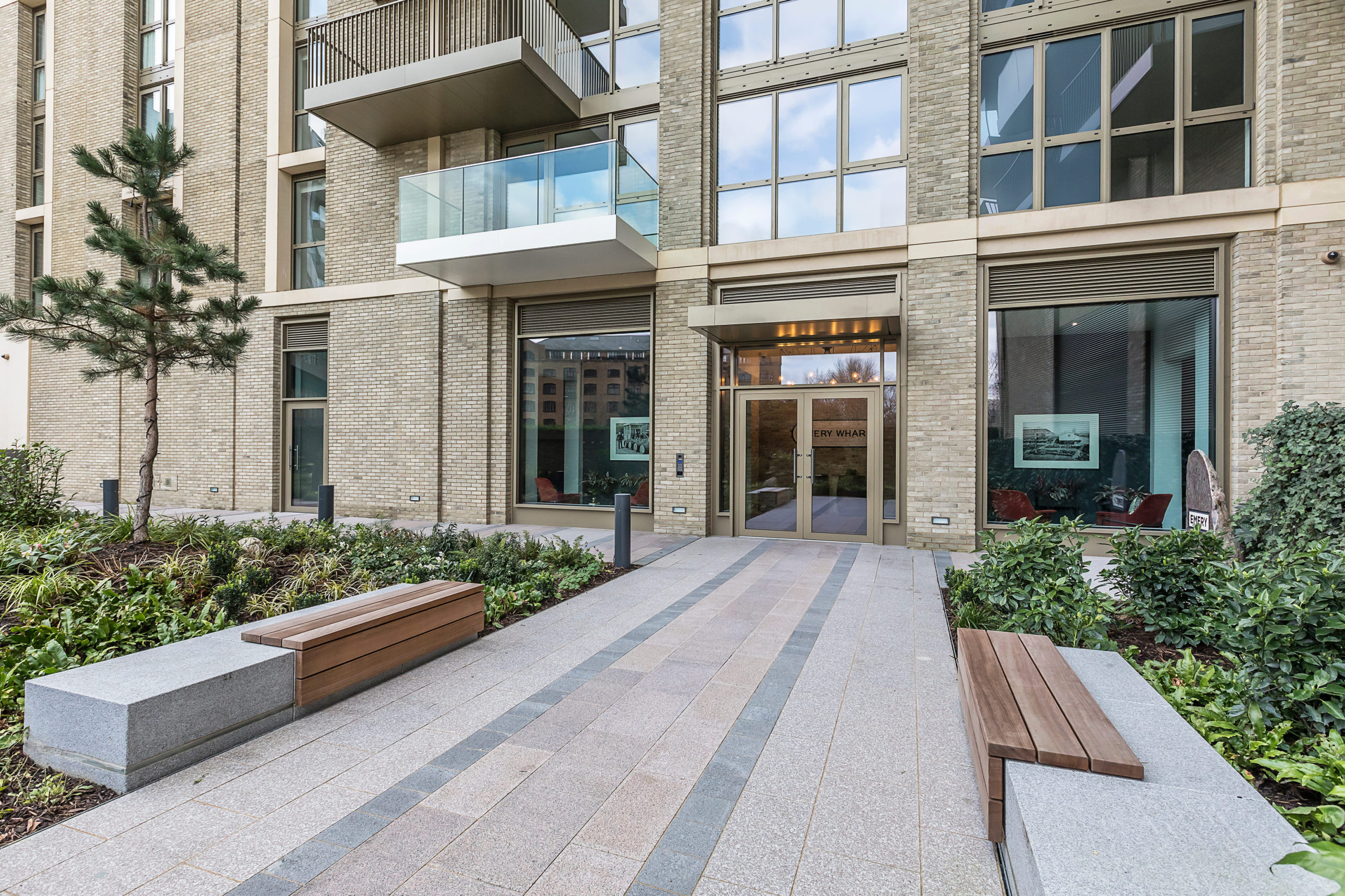
Legal Considerations for Condos
Condo Associations and Homeowners’ Associations (HOAs)
One of the key legal aspects of owning a condo is membership in the Condo Association or Homeowners’ Association (HOA), which is responsible for managing and maintaining the common areas and amenities within the condo complex. Here are some important points to consider:
Membership and Dues
- Mandatory Membership: In most cases, joining the condo association is mandatory for condo owners. This membership is typically outlined in the condo’s governing documents.
- Association Dues: Condo owners are required to pay regular association dues to cover the costs of maintenance, repairs, and common area amenities. It’s crucial to understand the frequency and amount of these dues.
Rules and Regulations
- CC&Rs: Review the Covenants, Conditions, and Restrictions (CC&Rs), which outline rules and regulations governing condo living. Violating these rules can result in fines or even legal action.
- Board Decisions: The association’s board of directors has the authority to make decisions that affect condo owners, so it’s essential to stay informed about their actions.
Dispute Resolution
Mediation and Arbitration: Many CC&Rs require disputes to be resolved through mediation or arbitration rather than going to court. Understand the dispute resolution mechanisms in place.
Maintenance and Repairs
Condo owners have certain rights and responsibilities when it comes to the maintenance and repair of their units and the common areas.
Unit Maintenance
- Owner’s Responsibility: Typically, owners are responsible for maintaining the interior of their units. This includes repairs and maintenance of fixtures, appliances, and personal property.
- Alterations and Renovations: Check the rules for making alterations or renovations within your unit, as these may require prior approval from the condo association.
Common Area Maintenance
Association’s Responsibility: Common areas, such as hallways, elevators, and exterior structures, are typically maintained by the condo association. Understand what is covered by your association dues.
Insurance
Condo owners need to have the appropriate insurance coverage to protect their investment and comply with legal requirements.
Condo Insurance
HO-6 Policy: Condo owners should have an HO-6 insurance policy, which covers their unit’s interior and personal property. This policy is distinct from the master policy held by the condo association.
Master Policy
Association’s Insurance: The condo association typically maintains a master insurance policy that covers common areas and the building’s structure. Review this policy to understand what it covers.
Resale and Rental Restrictions
Condos often come with restrictions on resale and rental of units.
Resale Restrictions
Right of First Refusal: Some associations have the right of first refusal, allowing them to purchase a unit before it’s sold to an outside party. Be aware of any such provisions.
Rental Restrictions
Rental Caps: Condo associations may impose rental caps, limiting the number of units that can be rented at any given time. Complying with these restrictions is essential for condo owners who plan to rent out their units.
Legal Considerations for Apartments
Image Link:
Apartments are another popular housing option, and while they have their own set of legal considerations distinct from condos, it’s equally crucial to be aware of them.
Lease Agreements
Rental agreements for apartments are typically governed by lease contracts. Understanding the terms and conditions of your lease is essential.
Lease Duration and Renewal
Lease Length: Be aware of the length of your lease, as well as any provisions for renewal or termination.
Rent and Security Deposits
- Rent Payment: Understand the monthly rent amount, due date, and accepted payment methods.
- Security Deposit: Know the amount of the security deposit, the conditions for its return, and the timeline for returning it after the lease ends.
Tenant Rights and Responsibilities
Both federal and state laws grant certain rights and responsibilities to apartment tenants.
Habitability
Safe and Habitable Conditions: Landlords are legally obligated to maintain the apartment in a safe and habitable condition. This includes ensuring proper heating, plumbing, and structural integrity.
Privacy and Access
Privacy Rights: Tenants have the right to privacy, and landlords generally need to provide notice before entering the apartment for non-emergency reasons.
Evictions
Understanding the legal process for eviction is crucial for both landlords and tenants.
Grounds for Eviction
Non-Payment: Non-payment of rent is a common reason for eviction, but there may be other valid grounds depending on local laws and the lease agreement.
Legal Procedures
Notice Requirements: Landlords must follow specific notice requirements and legal procedures when initiating eviction proceedings.
Fair Housing Laws
Federal and state fair housing laws prohibit discrimination in housing based on factors such as race, color, religion, sex, national origin, disability, and familial status. It’s essential to be aware of and comply with these laws when renting or managing apartments.
Similarities Between Condos and Apartments
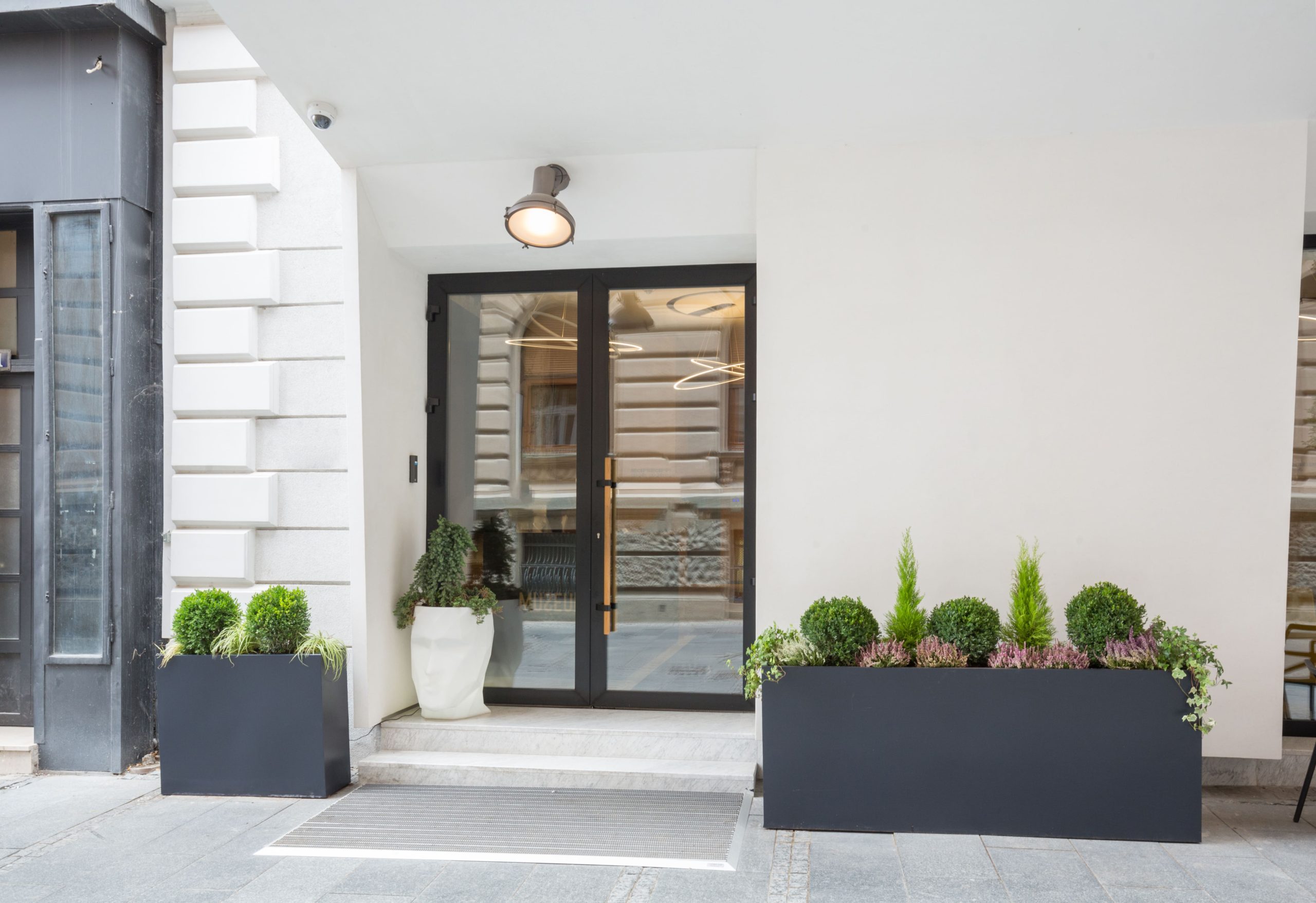
Condos and apartments are both popular choices for urban dwellers looking for housing options in densely populated areas. While they have some differences, they also share several similarities, making them attractive options for various types of individuals and families. Here are some of the key similarities between condos and apartments:
Shared Spaces and Amenities
Both condos and apartments often come with shared amenities like gyms, swimming pools, communal lounges, and green spaces. These shared facilities provide residents with additional benefits and opportunities for social interaction without the need for private ownership and maintenance.
Maintenance
In both condos and apartments, maintenance and repairs are typically handled by the property management or landlord. Residents are not responsible for tasks like landscaping, roof repairs, or common area upkeep, which can be a significant advantage compared to owning a house.
Location
Condos and apartments are frequently located in prime urban areas, offering convenient access to workplaces, shopping centers, entertainment venues, and public transportation. This central location is one of the primary reasons people choose both types of housing.
Security
Many condos and apartment buildings have security features such as gated entrances, intercom systems, security personnel, and surveillance cameras. These measures enhance the safety and peace of mind for residents.
Community
Both condos and apartments often foster a sense of community due to their proximity to neighbors and shared spaces. Residents may participate in social events, clubs, or activities organized by the building’s management, fostering a sense of belonging.
Lease or Ownership Options
While condos are typically owned, apartments are usually rented. However, some condos may be available for rent, blurring the lines between the two housing types. This means that individuals can choose the option that best suits their financial situation and lifestyle.
Convenience
Both condos and apartments offer a convenient lifestyle, with features like trash pickup, mail delivery, and on-site maintenance services, reducing the burden of daily chores and responsibilities for residents.
Flexible Living
Both housing types offer flexibility in terms of lease durations or ownership. This flexibility allows individuals to adapt to changing circumstances, such as job relocations, family size changes, or personal preferences, without the long-term commitment of homeownership.
Property Management
Condo associations and apartment management companies oversee the day-to-day operations of the property. They handle administrative tasks, enforce rules and regulations, and address resident concerns, ensuring that the property runs smoothly.
Cost-Sharing
In both condos and apartments, the cost of maintaining common areas, security, and amenities is shared among residents through fees or rent. This cost-sharing can often be more affordable than the expenses associated with owning a standalone property.
Condos vs Apartments | Tips For Making The Right Choice
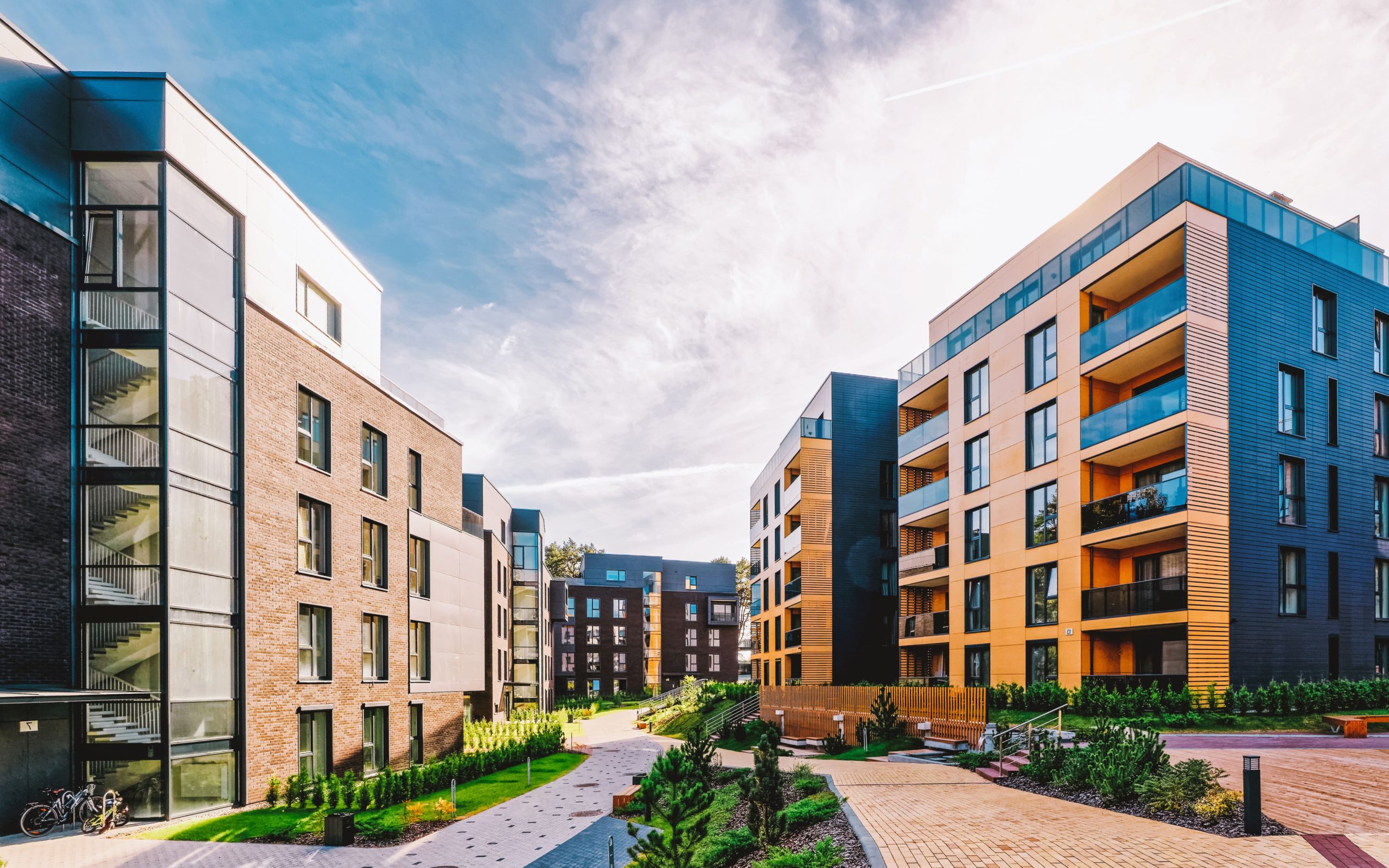
Conducting Research
- Research the local real estate market to understand the pricing and availability of condos and apartments in your desired area.
- Compare the cost of condo fees (for condos) and monthly rent (for apartments) to ensure they fit within your budget.
Visiting Properties
- Visit multiple condos and apartments to get a feel for the different living environments, amenities, and neighborhoods.
- Pay attention to the condition of the units and common areas during your visits.
Consulting with Real Estate Professionals
- Seek advice from real estate agents or brokers who specialize in the local market. They can provide valuable insights and help you navigate the buying or renting process.
Evaluating Your Priorities
- Consider your lifestyle and priorities. If you value ownership, customization, and long-term investment, a condo may be more suitable. If flexibility and minimal responsibility are important, renting an apartment may be better.
Budget Planning
- Create a detailed budget that takes into account all costs associated with owning a condo or renting an apartment, including mortgage (if applicable), condo fees, rent, utilities, and maintenance expenses.
- Ensure your budget allows for both your housing costs and other financial goals.
Which One Should You Choose: Condo or Apartment?

When deciding between apartments and condos, it’s important to make the right choice for your needs. While apartments and condos share many similarities, there are key differences that set them apart. This guide aims to clarify these distinctions.
If you’re still unsure about whether to go for an apartment or a condo for your next home, don’t worry – we’ve got you covered. Here are some crucial factors to take into account:
Landlord Relationship
- Condos typically involve a more personal relationship with your landlord. You’ll interact with them directly for rent payments, maintenance, and rule discussions.
- Apartments, on the other hand, often involve interaction with a property manager and various management committee members.
Duration of Stay
- If you’re planning a long-term residence, condos can offer better value due to potential investment benefits, amenities, and customization options.
Cost
- While apartment and condo costs can be similar, condos often come at a slightly higher price due to added amenities and ownership factors.
- However, there can be exceptions, so explore your options carefully.
Facilities
- Condos typically provide more amenities than apartments, but it’s essential to consider whether you’ll actually use them over time.
- Evaluate your preferences for facilities like fitness centers, concierge services, and libraries before making a decision.
A Comparison Between Condos vs Apartments
| ASPECT | CONDOS | APARTMENTS |
| Ownership | Privately owned units | Typically owned by a property management company or individual landlord |
| Property Type | Individual units within a larger building | Entire building or complex with multiple units |
| Ownership Costs | Mortgage, property taxes, and condo fees | Rent payments |
| Maintenance | Owners responsible for unit maintenance | Landlord or property management responsible for maintenance of common areas and units |
| Amenities | Often include amenities like pools, gyms, and parking | Amenities may vary but are generally provided by the property management |
| Customization | Owners can customize and renovate their units | Limited customization options for renters |
| Monthly Costs | Mortgage, property taxes, condo fees, and utilities | Rent, utilities, and possibly renter’s insurance |
| Resale and Investment | Can build equity and potentially appreciate in value | No equity or appreciation potential for renters |
| Community | Often have a sense of community among owners | Less of a sense of community among renters |
| Rules and Regulations | Governed by condo association rules and bylaws | Governed by lease agreement and landlord rules |
| Long-Term Commitment | Requires a long-term commitment as an owner | Typically offers more flexibility for renters |
| Maintenance Responsibility | Owners are responsible for repairs and upkeep | Landlord or property management handles maintenance |
| Security | Varies but may have security features in place | Generally, there are security features in the building |
| Property Insurance | Owners typically need condo insurance | Landlords usually have property insurance |
Let’s Wrap Up
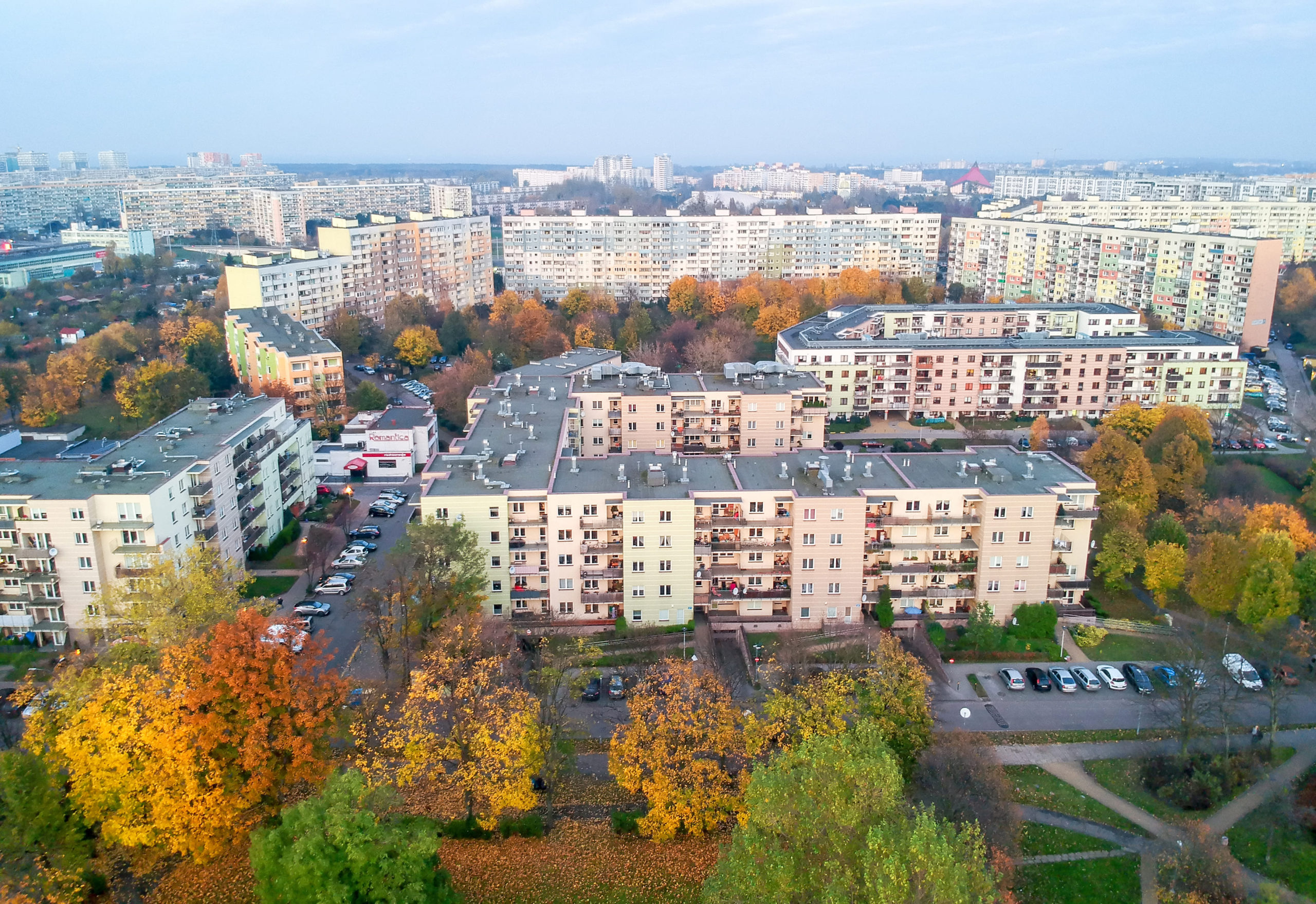
In conclusion, the decision between a condo and an apartment is a personal one, influenced by factors such as budget, long-term goals, and lifestyle preferences. The financial aspect of this decision is crucial. Can you afford the down payment, closing costs, and ongoing expenses of a condo? Or would the lower initial costs and monthly rent of an apartment be more manageable for your current financial situation?
Your long-term goals also play a significant role. Are you looking for a long-term investment opportunity where you can build equity and potentially profit from property appreciation? Then a condo might be the right choice for you. On the other hand, if you value flexibility and the ability to move easily without the hassle of selling a property, an apartment could be a more fitting option.
Lifestyle preferences are another important consideration. Do you dream of a luxurious living space with upgraded amenities like a state-of-the-art fitness center, concierge services, and an outdoor pool? If so, you might find the condo living experience more appealing. However, if you prefer a simpler living arrangement without the responsibility of property maintenance, then an apartment might be more in line with your preferences.
By carefully weighing your options, conducting thorough research, and seeking expert advice, you can confidently choose the housing option that best suits your unique circumstances. Remember, there�’s no right or wrong answer—it’s all about what works best for you. So take your time, do your homework, and trust your instincts. Happy house hunting!
FAQs
What is the main difference between a condo and an apartment?
The primary difference between a condo and an apartment lies in ownership. In a condo, you own the unit you live in, and you also share ownership of common areas and amenities with other condo owners. In contrast, an apartment is typically rented, and you don’t own any part of the building or complex.
Which is a better investment: a condo or an apartment?
The decision between investing in a condo or an apartment depends on your goals. Condos often have higher upfront costs and property taxes but can appreciate in value over time, making them a potentially better long-term investment. Apartments, on the other hand, provide rental income without the responsibilities of ownership, making them a good choice for those seeking immediate cash flow.
What are the advantages of living in a condo?
Living in a condo offers several advantages, including access to amenities like pools, gyms, and communal spaces without the hassle of maintenance. Condos often provide a sense of community and security, and they are typically located in desirable urban areas, making them convenient for city dwellers.
Are apartments more budget-friendly than condos?
Apartments are generally more budget-friendly in the short term because you don’t need to make a significant down payment or cover property taxes. However, condos can become more cost-effective in the long run if they appreciate in value and you eventually sell them. It’s essential to weigh your financial goals and circumstances when deciding which option is more budget-friendly for you.
Can I rent out my condo or apartment if I don’t want to live there anymore?
Both condos and apartments can typically be rented out, but there are differences in the process. If you own a condo, you have more flexibility to rent it out or even list it on short-term rental platforms like Airbnb. Apartments are usually rented through leases, which may have restrictions on subleasing or require permission from the landlord. Before renting out your unit, it’s crucial to review the terms of your lease or condo association rules to ensure compliance.




